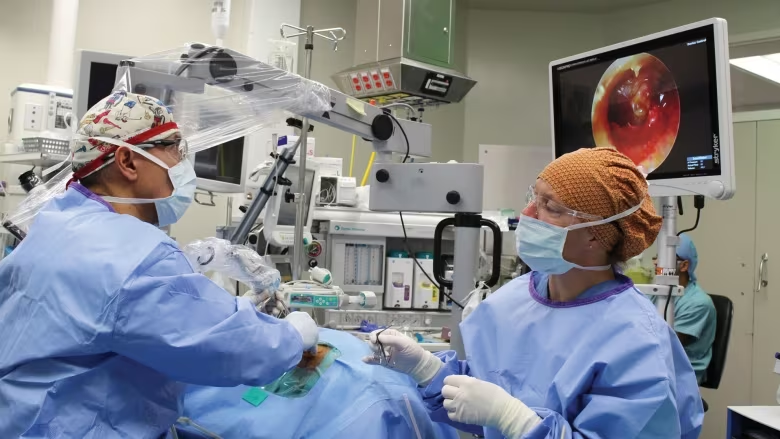- Home
- Medical news & Guidelines
- Anesthesiology
- Cardiology and CTVS
- Critical Care
- Dentistry
- Dermatology
- Diabetes and Endocrinology
- ENT
- Gastroenterology
- Medicine
- Nephrology
- Neurology
- Obstretics-Gynaecology
- Oncology
- Ophthalmology
- Orthopaedics
- Pediatrics-Neonatology
- Psychiatry
- Pulmonology
- Radiology
- Surgery
- Urology
- Laboratory Medicine
- Diet
- Nursing
- Paramedical
- Physiotherapy
- Health news
- Fact Check
- Bone Health Fact Check
- Brain Health Fact Check
- Cancer Related Fact Check
- Child Care Fact Check
- Dental and oral health fact check
- Diabetes and metabolic health fact check
- Diet and Nutrition Fact Check
- Eye and ENT Care Fact Check
- Fitness fact check
- Gut health fact check
- Heart health fact check
- Kidney health fact check
- Medical education fact check
- Men's health fact check
- Respiratory fact check
- Skin and hair care fact check
- Vaccine and Immunization fact check
- Women's health fact check
- AYUSH
- State News
- Andaman and Nicobar Islands
- Andhra Pradesh
- Arunachal Pradesh
- Assam
- Bihar
- Chandigarh
- Chattisgarh
- Dadra and Nagar Haveli
- Daman and Diu
- Delhi
- Goa
- Gujarat
- Haryana
- Himachal Pradesh
- Jammu & Kashmir
- Jharkhand
- Karnataka
- Kerala
- Ladakh
- Lakshadweep
- Madhya Pradesh
- Maharashtra
- Manipur
- Meghalaya
- Mizoram
- Nagaland
- Odisha
- Puducherry
- Punjab
- Rajasthan
- Sikkim
- Tamil Nadu
- Telangana
- Tripura
- Uttar Pradesh
- Uttrakhand
- West Bengal
- Medical Education
- Industry
Patients treated by female surgeons have lower risk-adjusted adverse postoperative outcomes

Sex-and gender-based differences in a surgeon's medical practice and communication may be factors in patients' perioperative outcomes. Patients treated by female surgeons have improved 30-day outcomes. However, whether these outcomes persist over longer follow-up has not been assessed.
To examine whether surgeon sex is associated with 90-day and 1-year outcomes among patients undergoing common surgeries, Wallis CJD, Jerath A, Aminoltejari K, et al carried out a population-based retrospective cohort study in adults in Ontario, Canada, undergoing 1 of 25 common elective or emergent surgeries between January 1, 2007, and December 31, 2019. Analysis was performed between July 15 and October 20, 2022.
An adverse postoperative event, defined as the composite of death, readmission, or complication, was assessed at 90 days and 1 year following surgery. Secondarily, each of these outcomes was assessed individually. Outcomes were compared between patients treated by female and male surgeons using generalized estimating equations with clustering at the level of the surgical procedure, accounting for patient-, procedure-, surgeon-, anesthesiologist-, and facility-level covariates.
- Among 11,65,711 included patients, 1,51,054 were treated by a female and 10,14,657 by a male surgeon. Overall, 14.3% of the patients had 1 or more adverse postoperative outcomes at 90 days and 25.0% had 1 or more adverse postoperative outcomes 1 year following surgery.
- Among these, 2.0% of patients died within 90 days and 4.3% died within 1 year.
- Multivariable-adjusted rates of the composite end point were higher among patients treated by male than female surgeons at both 90 days (13.9% vs 12.5%; adjusted odds ratio [AOR], 1.08; 95% CI, 1.03-1.13) and 1 year (25.0% vs 20.7%; AOR, 1.06; 95% CI, 1.01-1.12).
- Similar patterns were observed for mortality at 90 days (0.8% vs 0.5%; AOR 1.25; 95% CI, 1.12-1.39) and 1 year (2.4% vs 1.6%; AOR, 1.24; 95% CI, 1.13-1.36).
After accounting for patient, procedure, surgeon, anesthesiologist, and hospital characteristics, the findings of this cohort study suggest that patients treated by female surgeons have lower rates of adverse postoperative outcomes including death at 90 days and 1 year after surgery compared with those treated by male surgeons. These findings further support differences in patient outcomes based on physician sex that warrant deeper study regarding underlying causes and potential solutions.
Source: Wallis CJD, Jerath A, Aminoltejari K, et al. Surgeon Sex and Long-Term Postoperative Outcomes Among Patients Undergoing Common Surgeries. JAMA Surg. Published online August 30, 2023. doi:10.1001/jamasurg.2023.3744
MBBS, MD Obstetrics and Gynecology
Dr Nirali Kapoor has completed her MBBS from GMC Jamnagar and MD Obstetrics and Gynecology from AIIMS Rishikesh. She underwent training in trauma/emergency medicine non academic residency in AIIMS Delhi for an year after her MBBS. Post her MD, she has joined in a Multispeciality hospital in Amritsar. She is actively involved in cases concerning fetal medicine, infertility and minimal invasive procedures as well as research activities involved around the fields of interest.
Dr Kamal Kant Kohli-MBBS, DTCD- a chest specialist with more than 30 years of practice and a flair for writing clinical articles, Dr Kamal Kant Kohli joined Medical Dialogues as a Chief Editor of Medical News. Besides writing articles, as an editor, he proofreads and verifies all the medical content published on Medical Dialogues including those coming from journals, studies,medical conferences,guidelines etc. Email: drkohli@medicaldialogues.in. Contact no. 011-43720751


